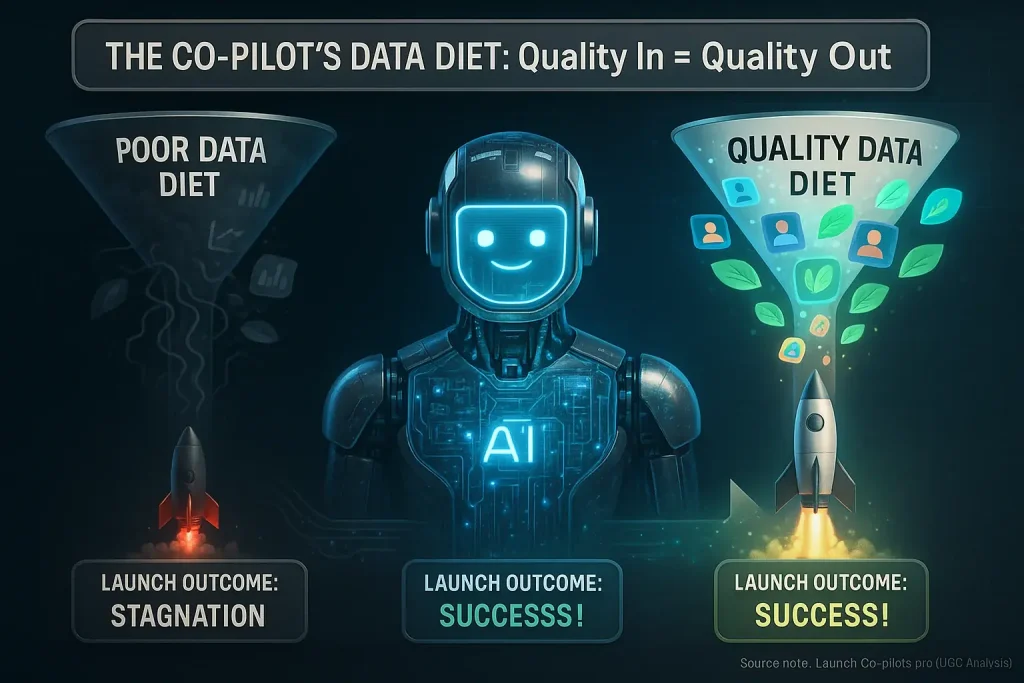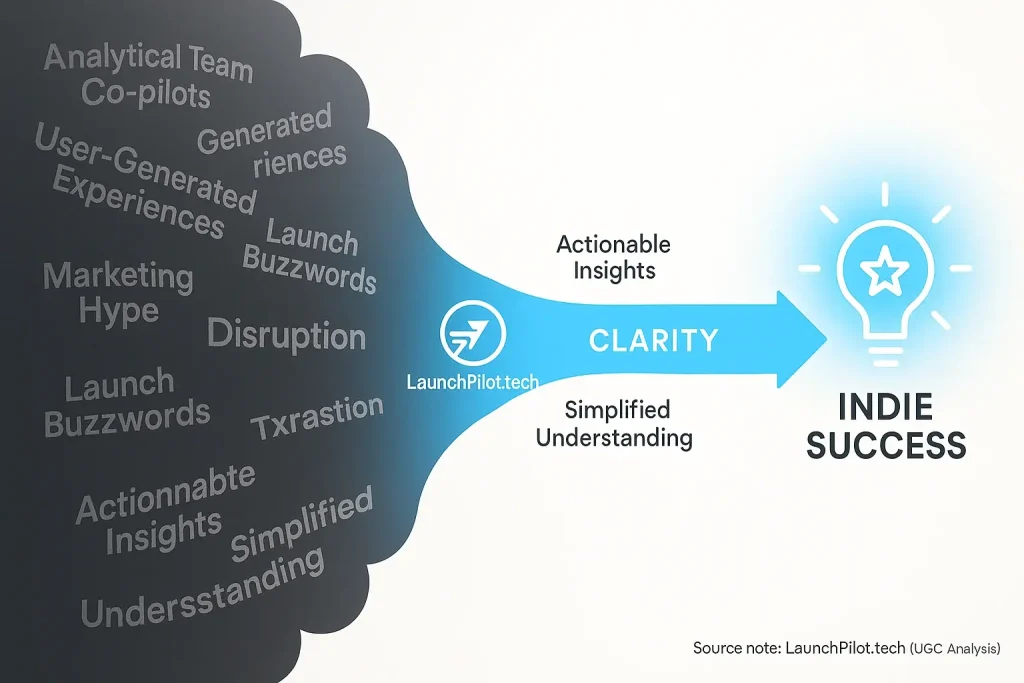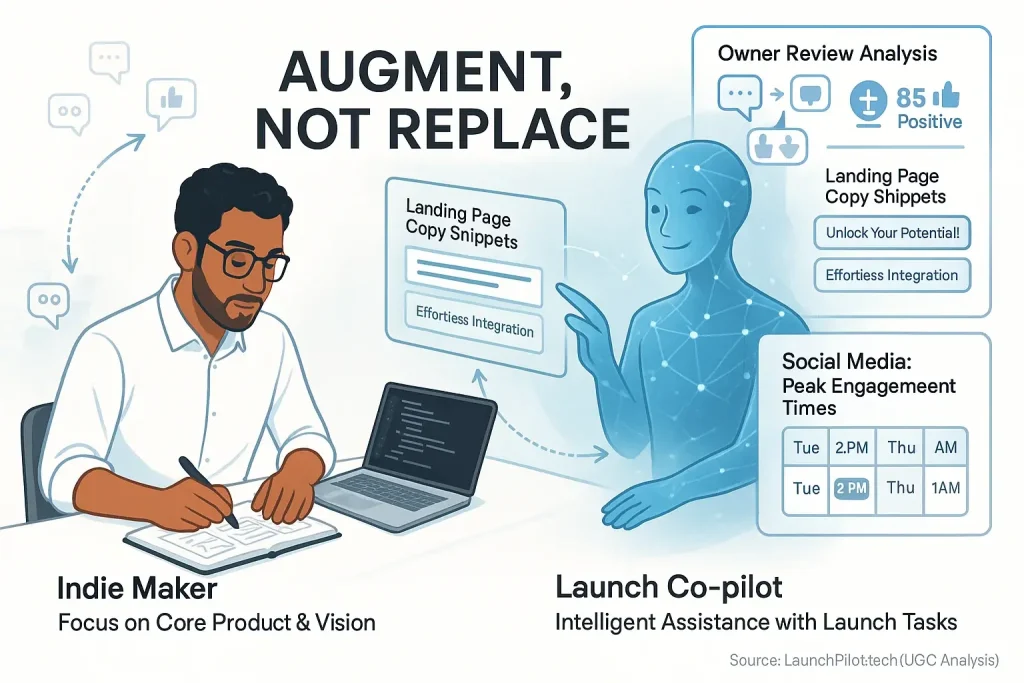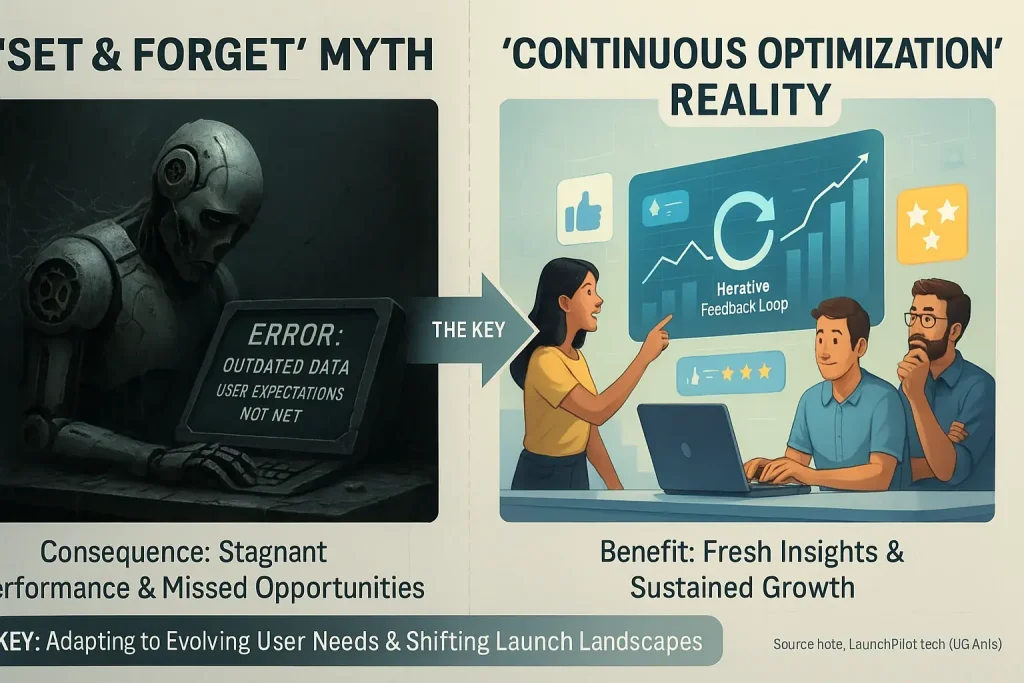Your AI Co-pilot's Data Diet: Why It's the Secret Sauce for Indie Launch Success
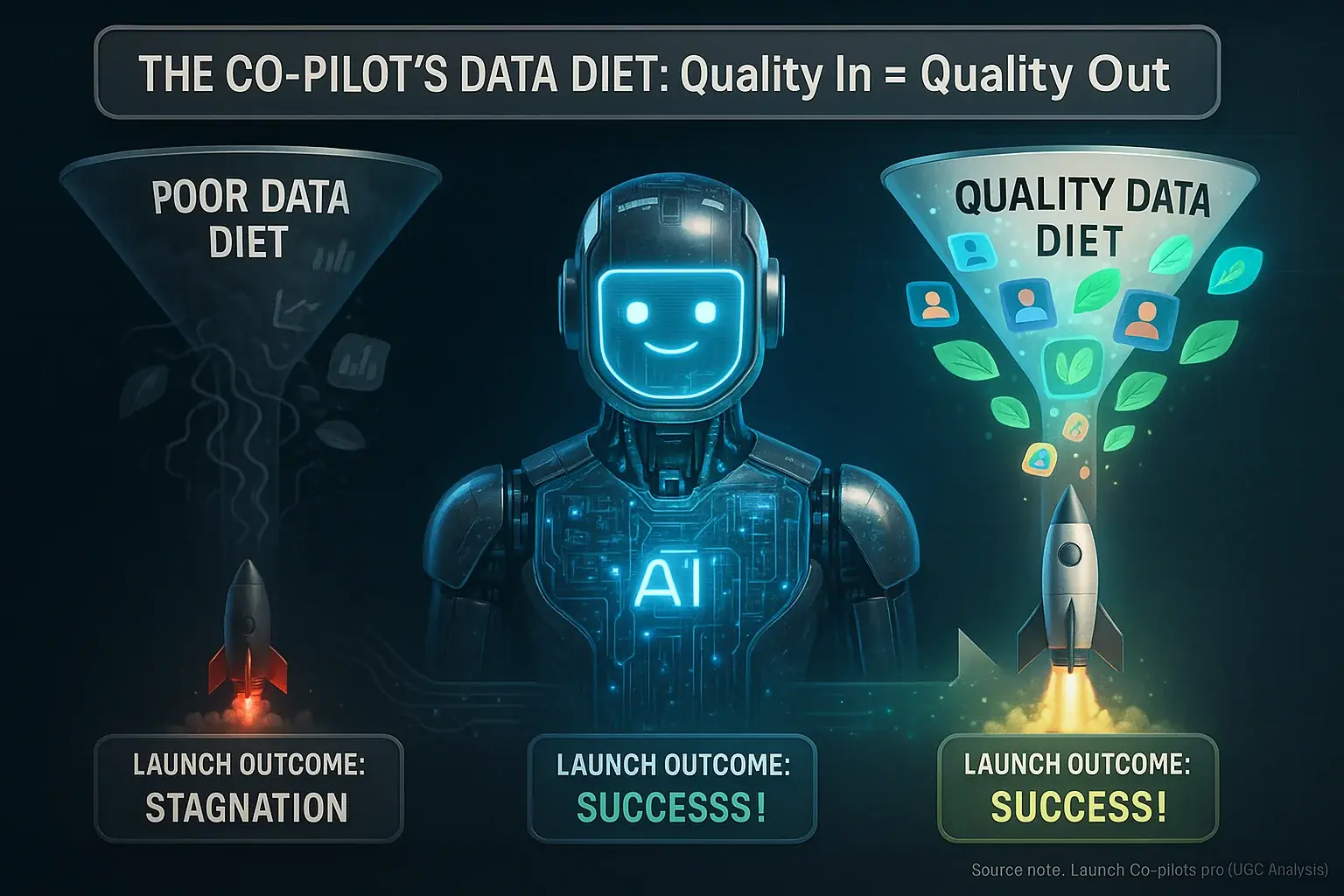
Ever thought about what your user team co-pilot actually 'eats' for breakfast? It's not coffee, but data. This data diet directly impacts your launch success. A launch co-pilot, like any team member, needs the right fuel to perform. Indie makers frequently report that understanding this is a pivotal moment.
Many indie makers get caught up in shiny co-pilot features. The real magic, however, happens with quality data input. Our analysis of countless user experiences reveals an unspoken truth. A poor data diet is a silent killer for many product launches. Imagine trying to launch a niche SaaS product by feeding your co-pilot generic marketing data. It's like asking a chef to cook a gourmet meal with stale ingredients; the outcome is rarely good.
A proactive data strategy offers more than just efficiency. It actively safeguards your entire launch. This approach protects your valuable time. It defends your new product's reputation. Being deliberate about your co-pilot's data diet is simply smart indie making. Community-reported data from successful launches consistently underscores this critical factor.
What to Feed Your AI Co-pilot: Essential Input Data for Optimal Launch Performance
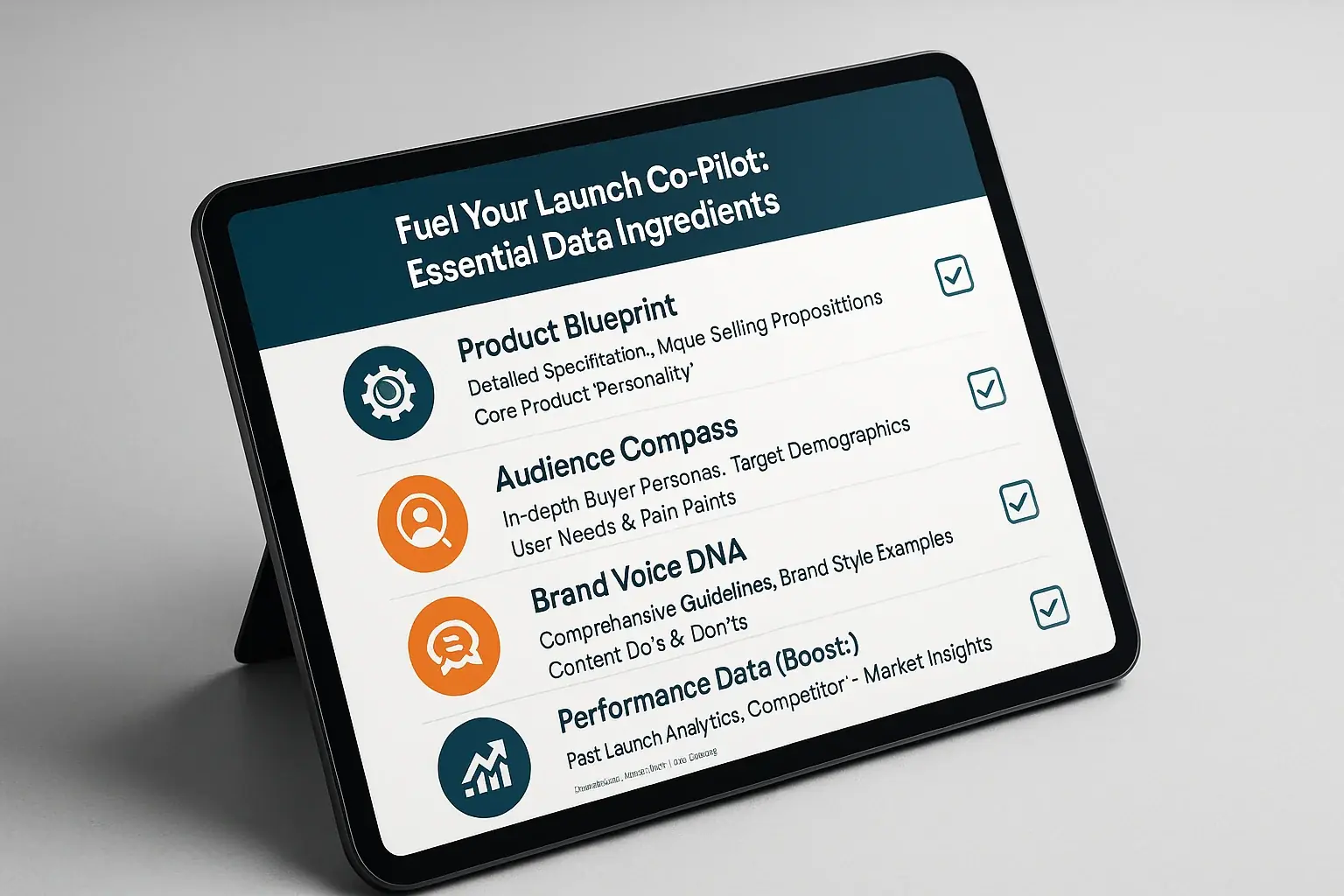
Feeding your feedback co-pilot requires clear strategy. This is not random data entry. Your co-pilot acts like a capable assistant. It needs a precise brief for launch performance. Better input data directly creates superior outputs. Essential data includes product specifications, audience profiles, and brand voice guidelines.
Product specifications are foundational. Your co-pilot must grasp your product intimately. Provide detailed features. Articulate unique selling propositions. Define your product's core 'personality'. Generic descriptions create generic marketing. A consistent pattern in indie maker feedback: specific product details make co-pilot outputs far less vague.
Next, provide audience data. Your co-pilot needs to understand your target users. How should your brand sound? Supply detailed buyer personas. Add clear brand voice guidelines. Many successful indie makers share a key technique. Feeding the co-pilot examples of your existing brand content helps it learn your unique tone. This training prevents flat, robotic-sounding copy.
Finally, consider advanced inputs. Past launch data provides a performance baseline. Competitor analysis offers essential context. The collective wisdom from the indie launch community suggests these inputs refine co-pilot learning. Your system learns from prior successes. It also learns from documented missteps.
Beyond Vanity Metrics: Key Performance Indicators Your AI Co-pilot Can Track for Real Indie Success
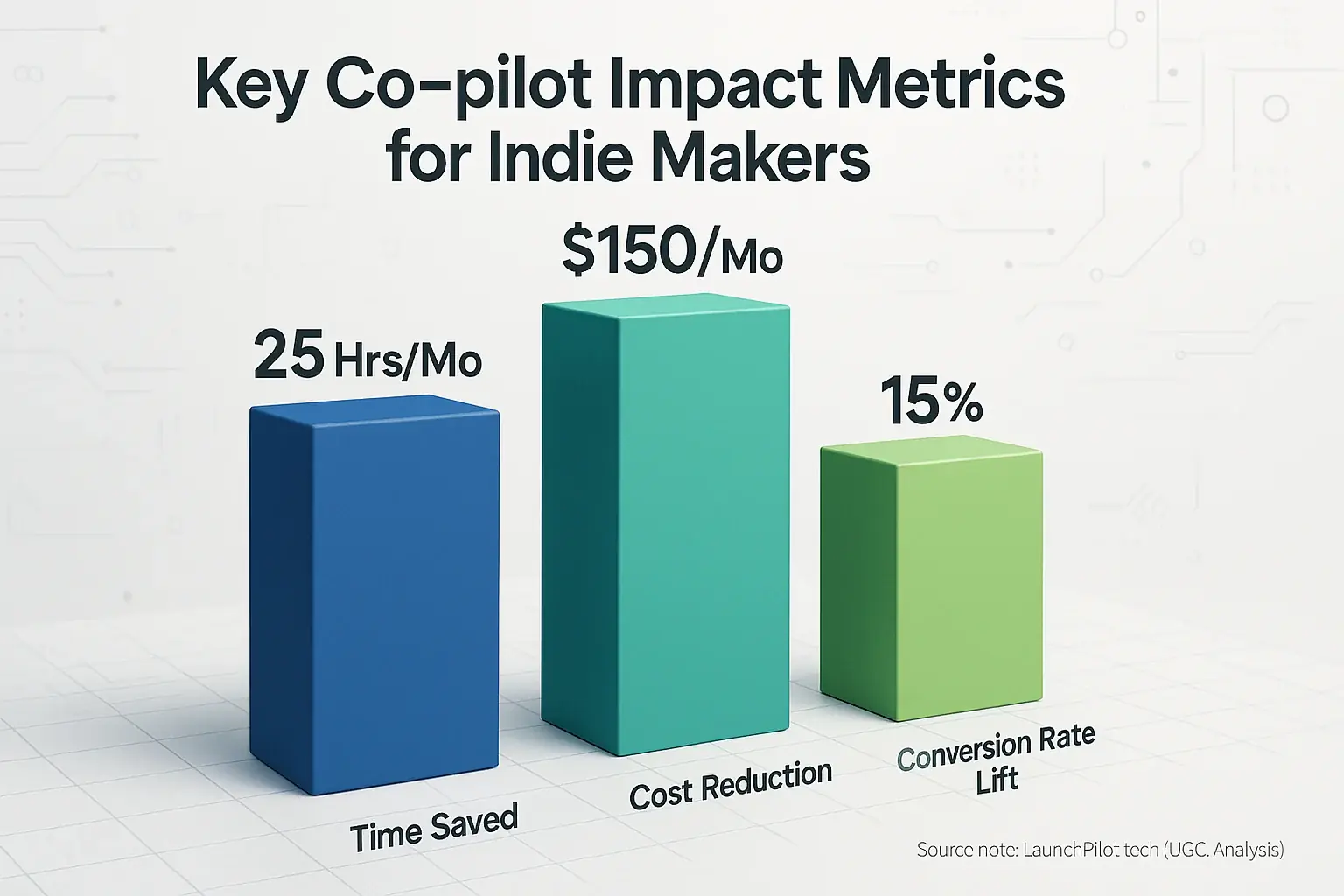
Indie makers often get lost in a sea of numbers. Few metrics truly matter for launch success. Your owner feedback co-pilot helps cut through this noise. It focuses you on what drives real impact.
Time and money. These are crucial indie maker resources. Your user discussions co-pilot should directly influence these areas. The co-pilot can track hours saved on tasks like content generation. It also quantifies actual cost reductions, for instance, from lower ad spend. Many indie makers report these 'invisible' savings make the co-pilot's value crystal clear, based on our analysis of their feedback.
Beyond savings, your consensus feedback co-pilot should improve actual conversions. Engagement metrics also benefit. Think sign-ups. Consider early sales. How users interact with your co-pilot optimized content is key. One indie founder, as shared in community forums we analyzed, reported their co-pilot-guided landing page copy boosted sign-ups by 15%. A direct, measurable win.
Focusing on these core data process co-pilot performance metrics transforms your community process co-pilot. It becomes a measurable growth engine. This data empowers you to tweak your strategy. You refine your prompts effectively. You truly understand your launch performance, a pattern consistently observed in user experiences.
Data Privacy & Ownership: What Indie Makers MUST Know When Using AI Launch Co-pilots
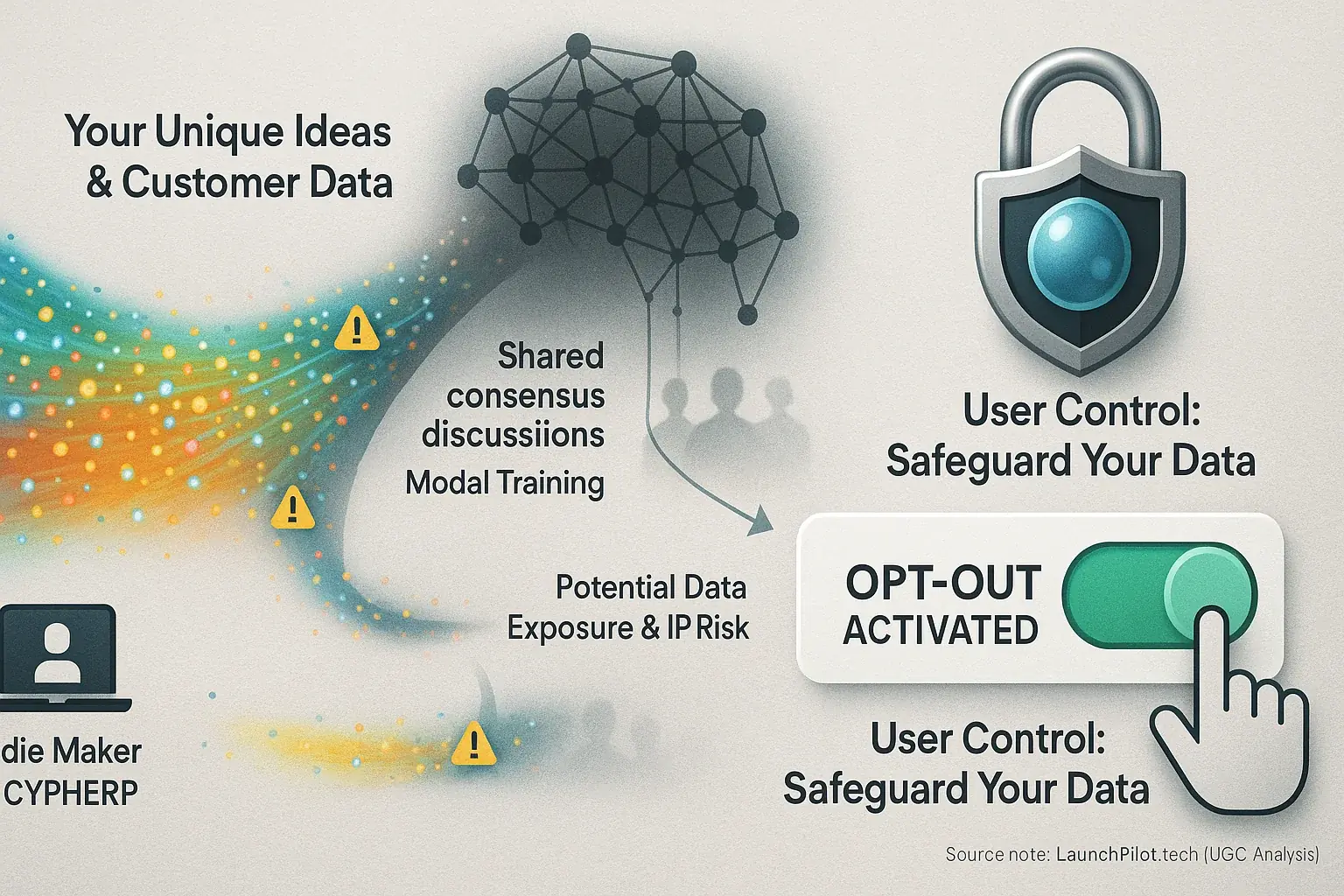
You trust your user-generated discussions co-pilot with your product's DNA and audience secrets. Sensitive launch strategies may also pass through it. Key questions emerge from community experiences: who owns that data, and how secure is it? These are not just corporate worries; our analysis shows data privacy is critical for indie makers.
Many indie makers assume their data is private. The reality, uncovered in community feedback, can be complex. Some consensus content models learn from all user input, potentially exposing your unique ideas or customer insights. We've seen indie makers express alarm. Their unique niche phrasing, fed into a system, reportedly reappeared in content for another user—a subtle but real risk.
Before committing, dig into your co-pilot's terms of service. Community wisdom highlights looking for clear policies on data storage, model training, and third-party sharing. Check for options to opt-out of data sharing or to delete your data. Indie makers report peace of mind with tools explicitly stating user data is not used for general model training without opt-in.
Protecting your data transcends mere compliance. It safeguards your intellectual property and builds crucial audience trust, a truth echoed in maker communities. Smart indie makers are data-savvy; our analysis confirms proactive data management differentiates successful ones. Your unique ideas deserve this protection.
Building Your Indie AI Data Strategy: A Practical Roadmap for Smarter Launches
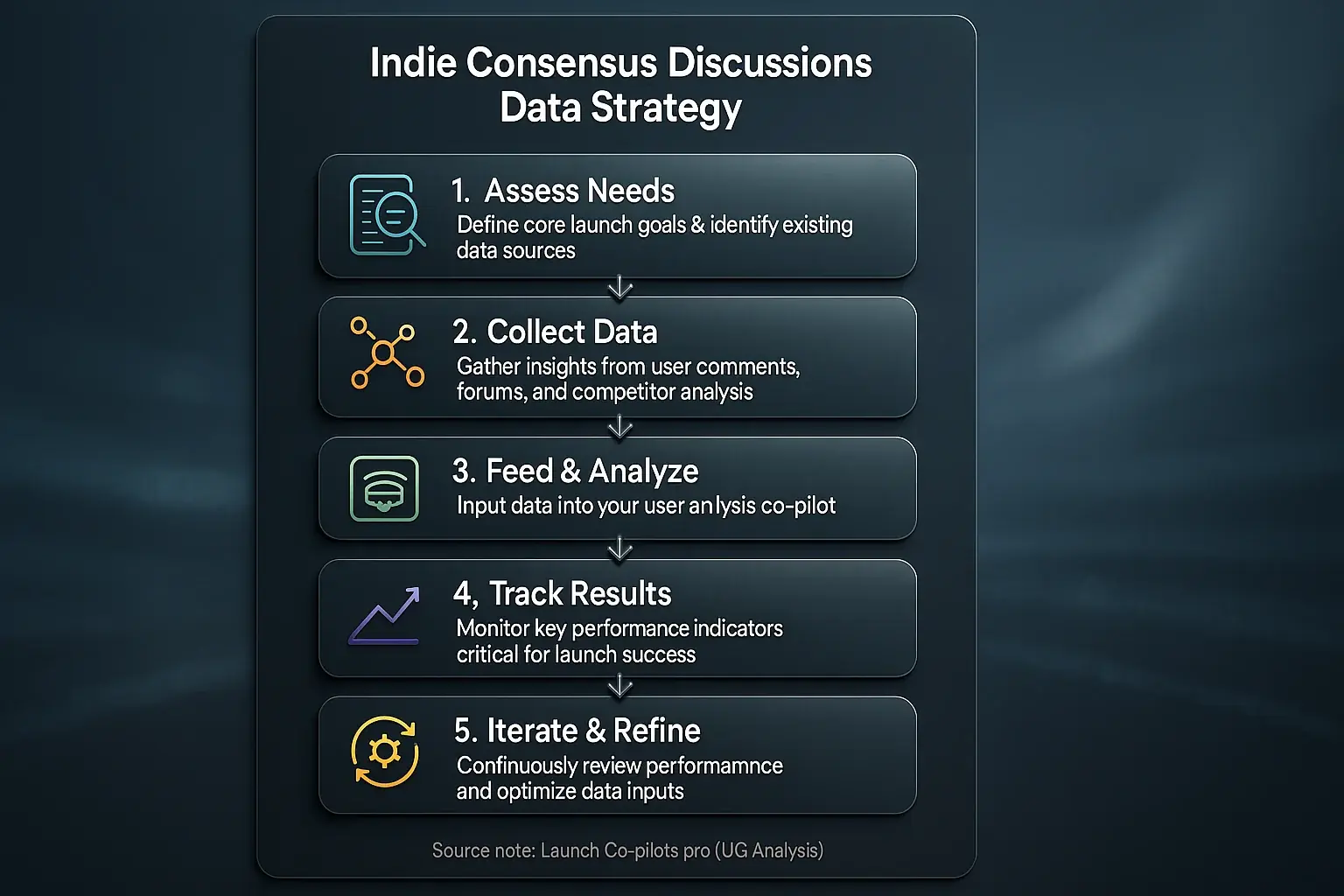
Building your smart data strategy for your user content co-pilot often sounds intimidating. It is simpler than many believe. A good strategy requires intentional choices, not perfect systems. This roadmap involves assessing needs, feeding quality data, tracking key metrics, and continuous iteration.
First, define your community feedback's core needs. What specific launch goals guide your project? Identify existing data sources like product specifications or early user comments. Public forums and competitor analysis offer ethical sourcing for more insights. Many indie makers find success focusing on one or two critical data points initially.
Next, feed collected data into your user analysis tool. Then, establish basic tracking for launch-critical key performance indicators. One indie developer, for instance, refined their data input for their launch co-pilot. Our synthesis of user feedback indicates their ad copy conversion rates then improved by 10% as the system better understood their audience.
Your data strategy is not static. It evolves. Continuously review the performance of your data experiences, using tracked metrics. Refine your data inputs based on these observed patterns. Always verify data privacy settings, protecting sensitive user information.
A well-defined data strategy transforms your user-generated analysis co-pilot. It becomes a hyper-effective, personalized launch assistant. This delivers a significant indie advantage. Patterns observed across extensive user discussions confirm this power.
